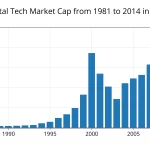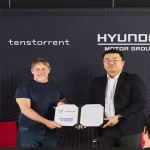Compared to the EU, Japan is leaning towards softer AI regulations
According to an official involved in the discussions, Japan is leaning towards adopting more lenient regulations for artificial intelligence (AI) compared to the European Union (EU). The country sees AI as a driver for economic growth and aims to position itself as a leader in advanced chip technologies.
By the end of the year, Japan intends to establish an AI approach that aligns more closely with the attitude of the United States rather than the strict regulations advocated by the EU. This stance may weaken the EU’s efforts to establish its rules as a global standard, particularly regarding requirements such as disclosing copyrighted materials used to train AI systems that generate content.
During his visit to Tokyo, EU industry chief Thierry Breton will promote the EU’s approach to AI regulations and explore opportunities for deeper cooperation in the semiconductor sector. The specific areas where Japan’s regulations are expected to differ from those of the EU were not disclosed by the government official.
Professor Yutaka Matsuo, chair of Japan’s AI strategy council, expressed the view that the EU’s rules are excessively strict, citing the challenge of specifying copyrighted materials used for deep learning. Matsuo believes that the EU’s focus is more on holding large companies accountable rather than promoting innovation.
The advancement of generative AI, exemplified by companies like OpenAI (backed by Microsoft), is generating both enthusiasm and concerns due to its potential to transform various aspects of business and society. AI, along with advanced semiconductors and quantum computers, is among the technologies in which the United States and its allied industrial democracies are competing with China for development.
Japan sees AI as a solution to address its population decline and labor shortage. Additionally, it expects AI to drive demand for advanced chips, which will be manufactured by the government-backed venture Rapidus as part of an industrial policy aimed at reclaiming Japan’s technological leadership. However, Japan’s computing power in terms of available graphics processing units (GPUs) for AI training significantly lags behind that of the United States.
Thierry Breton emphasized the importance of addressing concerns related to AI and expressed the need to explain the EU’s regulatory approach to likeminded partners such as Japan and the United States.

































